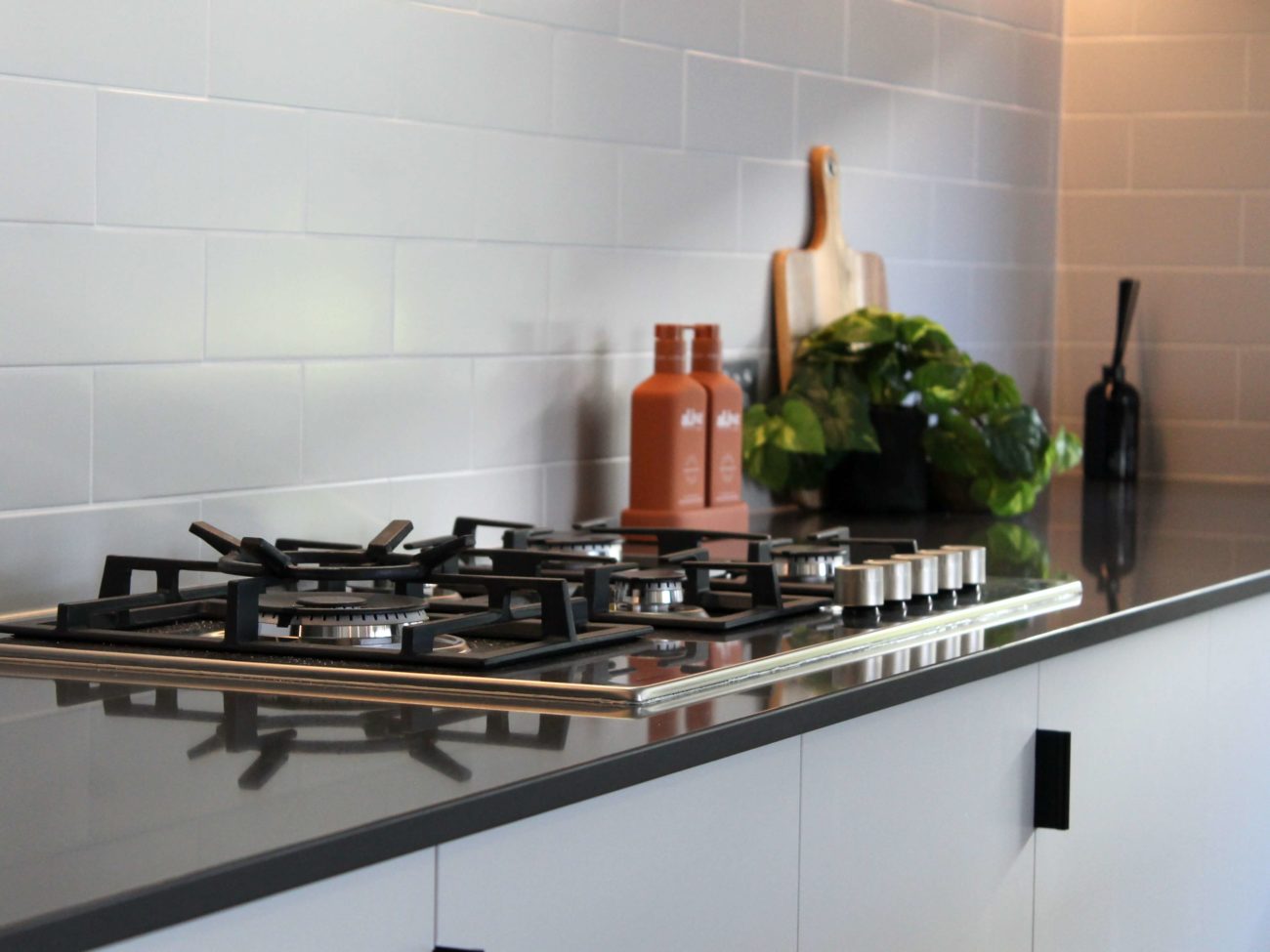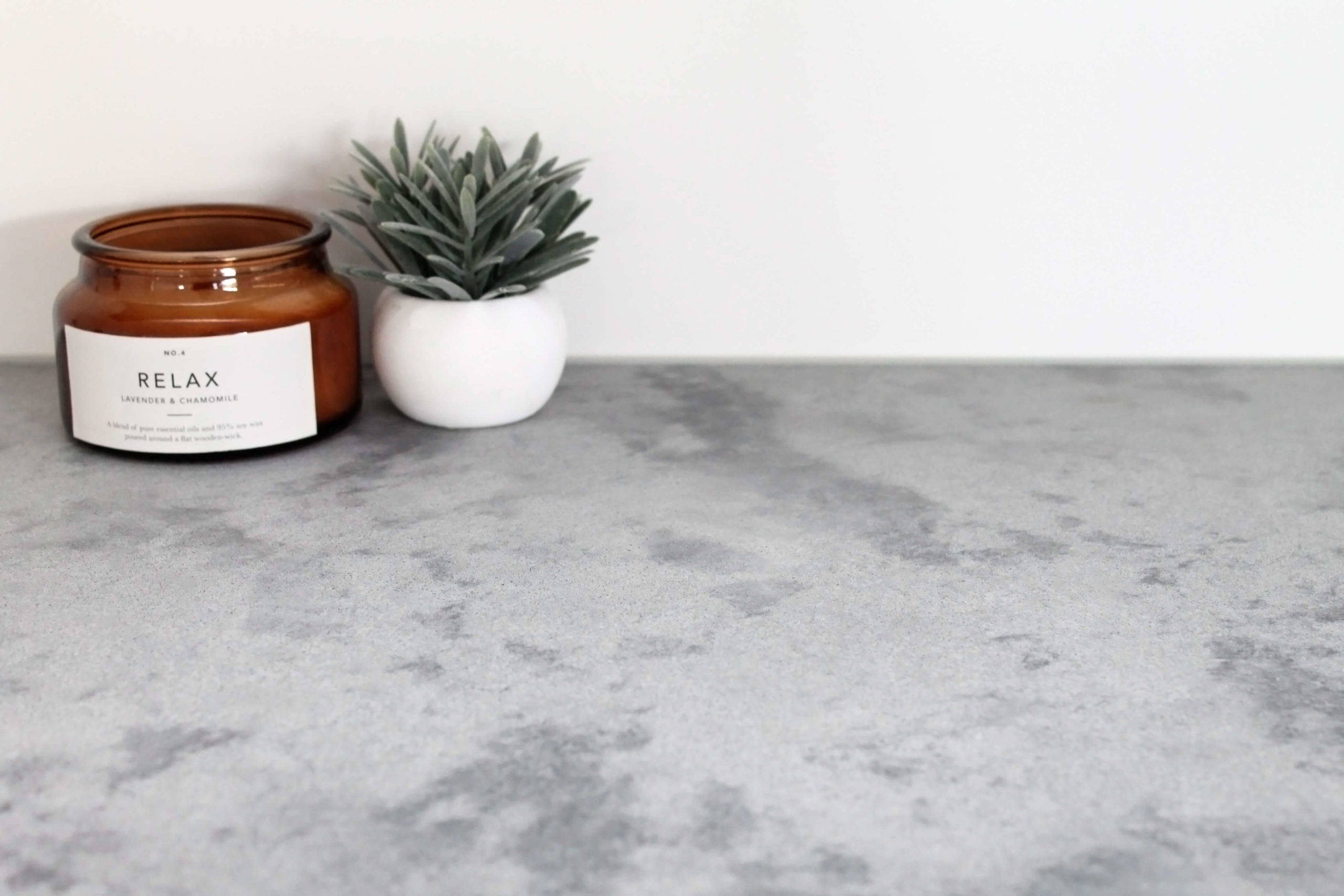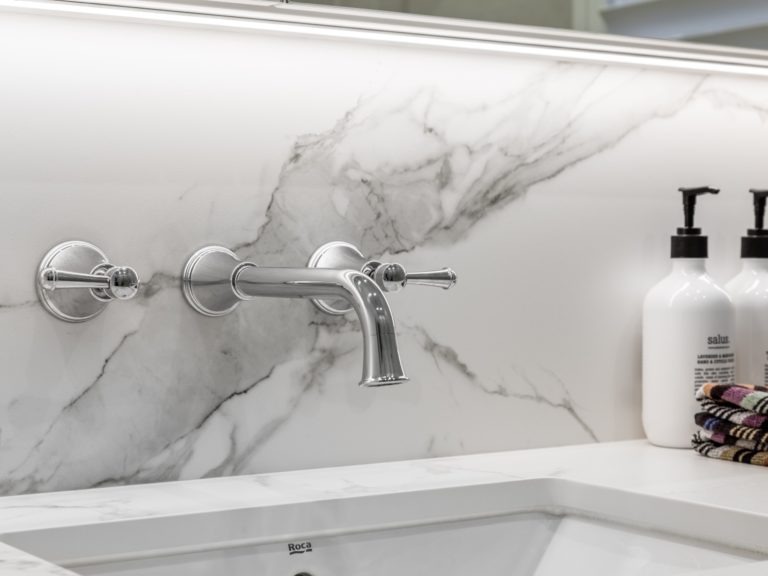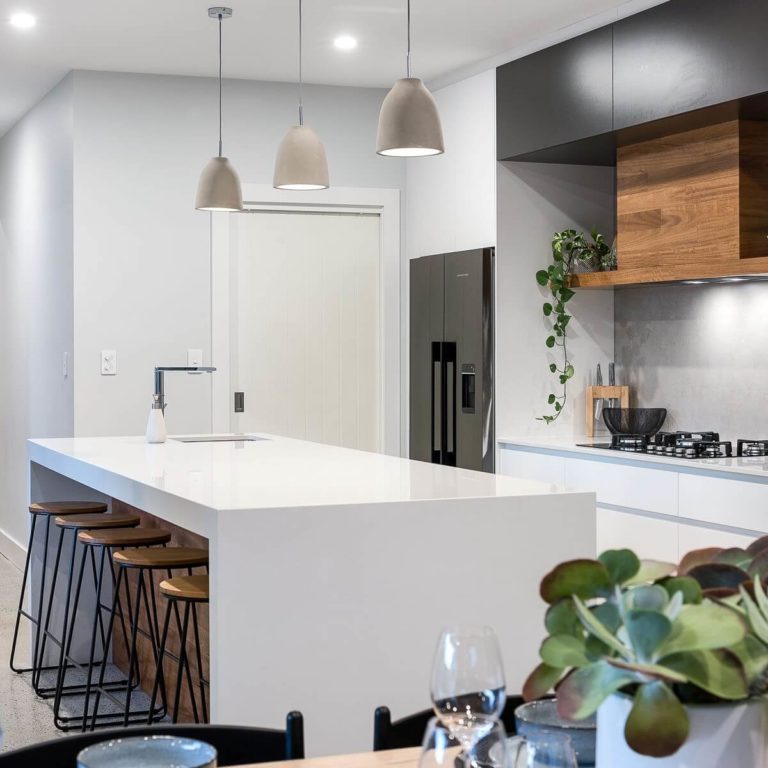Stone porosity is the ratio of pores to the stone’s volume. It can affect the material’s durability, hygiene level and overall maintenance. But before weighing up these factors, let’s go through some key terminology.
What is stone porosity?
Stone porosity is the volume of open spaces (pores) compared to a stone’s overall volume. For example, a porous material describes a medium with minute holes in which air or liquid can enter. Stone porosity is usually measured in percentage or decimal form.
What is the difference between porosity and permeability?
Permeability is how readily liquids flow through a material whereas porosity is the ability to hold liquids.

Why is it important?
Porosity is important to consider as it affects the product’s wear and tear, plus its stain and germ absorption. According to Engineering Geology, water penetration can affect the stone’s durability:
With a higher volume of open spaces, it’s more likely bacteria and mould can enter these pores if left unsealed.
Here’s not to say you can’t have a gorgeous natural stone top in your kitchen. Higher porosity stones are sealed regularly to preserve their appearance, improve durability and increase resistance to stains and liquid by extending the time before the contaminant can be absorbed. Nonetheless, it’s valuable to consider the maintenance required along with a high-porosity stone.
Low-porosity surfaces
Manufactured stone can range from zero to low porosity:
- Engineered stone is great value for money, and it’s chip, stain and scratch resistant with extremely low porosity.
- As porcelain is a ceramic product baked at high temperatures, its smooth, glass-like surface is virtually non-porous.
- Additionally, Ultra-Compact stone mocks natural metamorphic changes in rock using high-tech technology. It’s most notable for its zero-porosity and hard-wearing nature.
- Similarly, Quartz is hardy, durable and low maintenance.

Porous surfaces
Natural stone has a higher porosity than engineered and manufactured products, yet it can make a great statement on countertops and surfaces in your home.
- Granite is scratch resistant and more durable than most natural stones
- Marble is softer and more sensitive to household acids like citrus and vinegar, so it needs to be sealed regularly.
- Limestone and sandstone have both high porosity and permeability and can be susceptible to corrosion and etching. Its most commonly used as a construction material and in outdoor settings on pavers and feature walls.
Want to see more stone varieties? Check out our gallery here.




